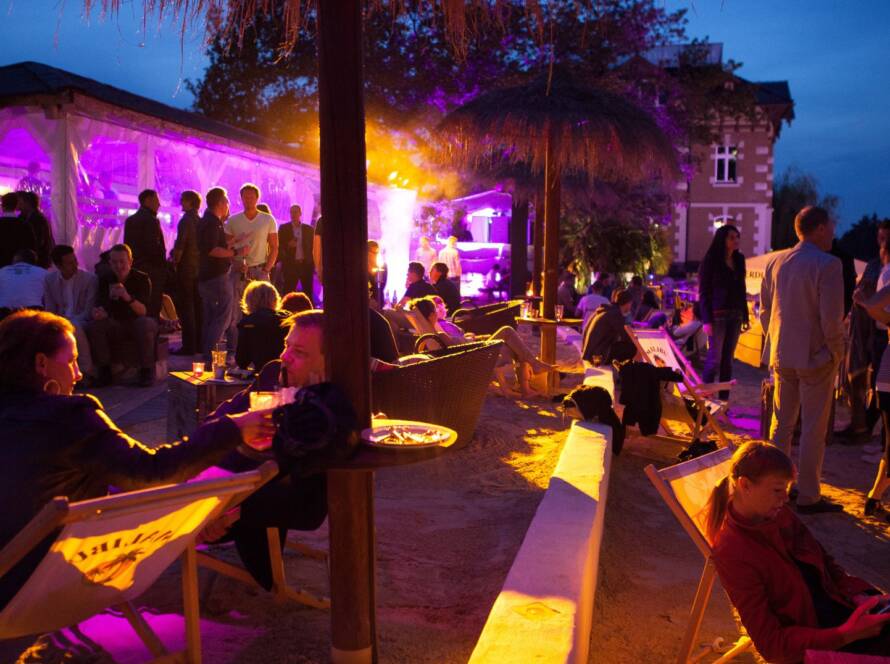Corporate events are powerful tools for businesses. Whether it’s a product launch, a team-building retreat, an annual conference, or a formal gala, these events can boost employee morale, foster networking opportunities, enhance brand awareness, and celebrate company milestones. But creating a memorable corporate event that stands out and leaves a lasting impact requires more than just choosing a date and venue.
To plan a successful corporate event, you need to ensure that every aspect—from initial concept to execution—is carefully thought out and designed to meet your company’s goals. In this blog, we’ll explore essential tips to help you create memorable corporate events that impress guests and achieve your objectives.
1. Define Clear Goals and Objectives
Before diving into event planning, it’s crucial to establish the primary goals and objectives of your corporate event. Ask yourself why you are hosting the event and what you want to achieve. Is it to:
- Launch a new product?
- Boost team morale?
- Strengthen relationships with clients or partners?
- Celebrate company achievements?
- Promote a brand or cause?
Having a clear purpose will guide your planning decisions, from the event’s theme to the target audience and structure. Knowing your objectives also helps in measuring success afterward, whether through feedback, engagement, or return on investment (ROI).
How to Set Effective Event Goals:
- SMART Goals: Your goals should be Specific, Measurable, Achievable, Relevant, and Time-bound.
- Align with Business Strategy: Ensure your goals reflect the company’s broader mission and values.
- Budget Awareness: Set realistic goals that align with the budget and resources available.
2. Understand Your Audience
A successful corporate event is one that resonates with its audience. Whether you’re hosting employees, clients, investors, or industry peers, understanding the needs, preferences, and expectations of your audience is essential.
How to Know Your Audience:
- Demographic Information: Consider the age, job roles, and interests of your attendees.
- Previous Event Feedback: If you’ve held similar events in the past, look at what attendees appreciated or disliked.
- Tailored Experiences: Create segments within your audience and offer personalized experiences. For example, a networking session for senior executives and interactive workshops for younger employees can cater to the varied interests of attendees.
By knowing your audience, you can tailor everything from the theme to the agenda, ensuring your guests remain engaged and satisfied throughout the event.
3. Choose the Right Venue
The venue is one of the most important elements of any corporate event. It sets the tone and can significantly impact the overall experience. Choosing the right venue involves more than simply finding a large enough space—you need to consider the location, ambiance, accessibility, and the type of event you’re hosting.
Tips for Selecting the Perfect Venue:
- Capacity and Layout: Ensure the venue can comfortably accommodate all attendees and any additional needs such as staging, entertainment, or catering.
- Location: Choose a venue that is convenient for your guests, considering factors like proximity to hotels, parking availability, and public transportation.
- Technology and Amenities: Make sure the venue is equipped with the necessary technology, such as AV equipment, Wi-Fi, and charging stations.
- Atmosphere: The style and feel of the venue should match the theme of your event. A sleek, modern conference room may be perfect for a product launch, while a historic mansion or ballroom might be ideal for a corporate gala.
When booking the venue, also check for flexibility in case of changes to the guest list or event structure. Visiting the venue in advance and discussing specific logistical needs with the venue’s staff will help avoid any surprises on the day of the event.
4. Design a Compelling Event Theme
An event theme ties all the elements of your corporate gathering together and adds a layer of cohesion and excitement. A compelling theme can transform a standard event into a unique experience that engages attendees and makes the event more memorable.
How to Create an Effective Theme:
- Align with Event Goals: The theme should reflect the purpose of the event. For example, a “Future of Innovation” theme may be perfect for a tech company’s product launch, while a “Celebration of Success” theme might work for an annual awards gala.
- Consistency: Ensure the theme is carried through all elements, from invitations and décor to the entertainment and giveaways. The theme should feel integrated rather than a last-minute add-on.
- Consider Audience: The theme should resonate with your audience. A fun, casual theme might work for a team-building retreat but may not be appropriate for a high-level investor meeting.
The theme can guide your décor, entertainment, and even the catering choices, making it easier to create a cohesive and enjoyable experience for your guests.
5. Create a Detailed Event Agenda
Once you’ve set your goals, chosen a venue, and crafted a theme, it’s time to create an agenda. The event agenda will structure the day and ensure that everything runs smoothly. It also allows you to balance different elements—like networking sessions, presentations, and entertainment—without overwhelming your guests.
Key Considerations for a Successful Agenda:
- Pacing: Don’t overload your attendees with back-to-back presentations. Mix up the schedule with breaks, meals, and interactive sessions to maintain energy levels.
- Engagement Opportunities: Include opportunities for guests to interact with each other through networking sessions, Q&A panels, or group activities.
- Time Management: Stick to the schedule. Ensure that speakers and entertainment segments don’t run overtime, as this can cause frustration and disrupt the flow of the event.
- Entertainment: If appropriate, add in entertainment elements like live music, a guest speaker, or team-building exercises to keep the event lively and engaging.
Distribute the agenda in advance to give your attendees a clear idea of what to expect. Having a well-thought-out plan in place allows for a smooth, enjoyable experience, with no surprises or rushed segments.
6. Incorporate Interactive and Engaging Elements
Corporate events that engage and entertain guests are far more likely to be remembered than those that simply inform. Consider incorporating interactive elements that encourage participation and keep your audience engaged throughout the event.
Ideas for Engagement:
- Workshops and Breakout Sessions: Encourage hands-on learning or discussion through smaller group sessions.
- Live Polling and Q&A: Use technology to engage guests by incorporating live polling or real-time Q&A sessions with speakers or panelists.
- Networking Opportunities: Set up designated networking areas, icebreaker activities, or social apps to facilitate connections.
- Interactive Displays: If you’re showcasing new products or services, use interactive displays or demonstrations to let guests engage directly with your offerings.
Adding these elements will break up any monotony and ensure that your event is not only informative but also dynamic and enjoyable.
7. Focus on Exceptional Catering
Food and drink are key elements that can make or break any event. To create a memorable corporate event, it’s essential to offer exceptional catering that matches the tone and style of the gathering.
Tips for Successful Catering:
- Menu Variety: Offer a range of food options that cater to different dietary preferences, including vegetarian, vegan, gluten-free, and allergy-friendly choices.
- Theme Integration: If your event has a specific theme, try to match the food and drinks to that theme. For example, a “Global Innovation” theme could feature an international menu.
- Interactive Food Stations: Instead of a traditional sit-down meal, consider interactive food stations where guests can sample different cuisines or customize their dishes. This adds an element of fun and encourages mingling.
- Signature Cocktails: Offering signature drinks designed specifically for the event can add a personal touch.
Ensure that your catering service is well-coordinated with the event schedule, so meals and refreshments are served at optimal times.
8. Leverage Technology
Technology is a vital part of corporate event planning and can enhance the experience for both organizers and attendees. From registration to live streaming and event apps, the right tech tools can streamline the process and create a more engaging experience.
Ways to Integrate Technology:
- Online Registration and Ticketing: Simplify the sign-up process for guests with user-friendly online registration platforms.
- Event Apps: Use an event app to provide guests with real-time updates, maps, speaker bios, and networking opportunities.
- Social Media Integration: Encourage guests to post about the event using a dedicated hashtag. You can also live stream parts of the event for those unable to attend in person.
- Feedback Tools: Collect feedback from attendees through post-event surveys or real-time polls during the event.
Using technology efficiently can help create a seamless experience, ensure strong communication, and provide valuable insights into attendee engagement.
9. Follow-Up and Measure Success
Your corporate event doesn’t end when the last guest leaves. Following up with attendees and evaluating the success of the event is a crucial step in planning future events and improving your strategies.
Post-Event Steps:
- Send Thank-You Notes: Send personalized thank-you messages to attendees, sponsors, and speakers, either through email or physical cards.
- Share Highlights: Share event photos, videos, or a recap on your company’s website and social media. This helps keep the buzz alive post-event.
- Gather Feedback: Ask for feedback through surveys or direct communication to understand what worked well and what could be improved.
- Measure Success: Analyze key metrics like attendance numbers, engagement rates, and ROI to assess whether the event achieved its goals.
By maintaining post-event communication, you continue building relationships with attendees and sponsors, which can lead to stronger connections and future opportunities.
Conclusion
Creating a memorable corporate event requires a thoughtful approach, careful planning, and attention to detail. From


